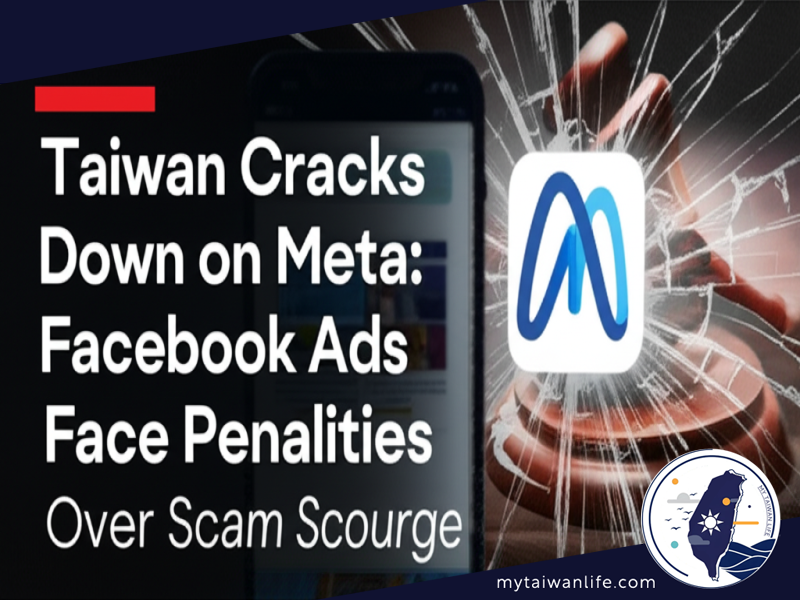Taiwan Cracks Down on Meta: Facebook Ads Face Penalties Over Scam Scourge
NT$400 Million Daily Lost to Scams, With Facebook Ads at the Center

TAIPEI, TAIWAN – The Ministry of Digital Affairs in Taiwan is poised to penalize Meta, the parent company of Facebook, for failing to adequately enforce real-name verification for online advertisements. Minister Huang Yen-nan (黃彥男) announced the move, following a meeting with law enforcement agencies.
A recent report revealed that Taiwanese citizens are losing an estimated NT$400 million (US$13 million) daily to scams. Alarmingly, 70% of these losses are linked to fraudulent activities originating from Facebook advertisements.
CommonWealth Magazine's data highlights that Facebook has topped the list of platforms associated with scams for two consecutive years, with over 60% of respondents reporting encountering fraudulent content on the site. From April 2023 to September 2024, nearly 59,000 scam ads were recorded across both Facebook and Google platforms.
One notable instance involved a Chiayi County Facebook group with over 410,000 members, which was overrun with fake job postings. The group administrator reported dozens, sometimes over 100, scam ads appearing daily, rendering the group almost unmanageable.
Minister Huang described Meta as the "more problematic platform," noting that 60% to 70% of financial scams originate from Facebook ads. Deputy Interior Minister Ma Shi-yuan (馬士元) confirmed that the police have already referred 15 cases to the digital ministry for administrative action.
Legislator Hung Mung-kai (洪孟楷) raised concerns about the delay in implementing the penalties. Huang responded that the government has been communicating with Facebook and other platforms, and relevant systems are in place. Platforms are required to remove reported scam ads within 24 hours, a rule that has generally been followed. In addition, the digital ministry has deployed AI tools to detect and flag suspicious ads, removing approximately 100,000 fraudulent entries in recent months.
Government officials are now planning in-person meetings with Meta executives, demanding stricter enforcement and enhanced cooperation to combat these scams. Ma urged platforms such as Facebook and Line to improve self-regulation and ad screening, acknowledging that law enforcement alone cannot monitor the vast amount of online content.
Other Versions
Taiwán reprime el Meta: Los anuncios de Facebook se enfrentan a sanciones por el azote de las estafas
Taïwan réprime la méta : Les publicités sur Facebook sont sanctionnées en raison du fléau des escroqueries
Taiwan Menindak Keras Meta: Iklan Facebook Menghadapi Hukuman Atas Momok Penipuan
Taiwan dà un giro di vite a Meta: Gli annunci di Facebook subiscono sanzioni per la piaga delle truffe
台湾がメタを取り締まる:フェイスブック広告、詐欺被害で罰則の対象に
대만, 메타를 단속하다: 페이스북 광고, 사기 재앙으로 처벌을 받다
Naghigpit ang Taiwan sa Meta: Ang mga Ad sa Facebook ay May Parusa Dahil sa Pagkalat ng Pandaraya
Тайвань вводит жесткие меры против мета: Рекламные объявления Facebook подвергаются штрафам за мошенничество
ไต้หวันเข้มงวดกับ Meta: โฆษณา Facebook เผชิญบทลงโทษจากปัญหาการหลอกลวง
Đài Loan Siết Chặt Meta: Quảng Cáo Facebook Đối Mặt với Hình Phạt vì Nạn Lừa Đảo

